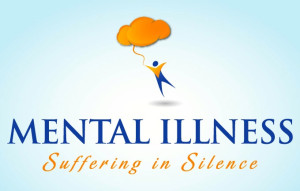Importance of not ignoring signs of suicide
By Alisa Merino
Each year, more people die from suicide than war, homicide and natural disasters combined.
The good news is that suicide can be prevented if the signs are detected and the right actions are taken.

Here are prevention and support hotlines that anyone can call for immediate suicide concerns:
· Suicide Prevention Lifeline
800.273.8255 or text “ANSWER” to 839863
· 24-Hour Psychiatric Emergency Services (El Dorado County Mental Health)
Placerville: 530.622.3345
South Lake Tahoe: 530.544.2219
· Suicide Prevention Network
California or Nevada residents: 775.783.1510
Other local mental health resources can be found online.
Healthy coping skills are critical for dealing with incidents of trauma throughout life. Unfortunately, some people find that life stressors are too difficult and some choose negative ways to cope.
The most critical warning signs of suicide are:
● Talking about wanting to die or about suicide
● Talking about feeling hopeless or having no reason to live
● Looking for ways to kill oneself.
If someone you know is displaying these signs, take action and follow these steps:
Step one: Ask. Ask the person directly if he or she is thinking about suicide. “I’ve noticed you’ve been acting different and I’m really concerned. Are you thinking about suicide?”
Step two: Listen. Hear the person’s story. Listen and offer support without judgment. “It sounds like you are going through a lot. I’m so sorry. How can I support you?”
Step three: Connect. Connect the person to resources. “I want to make sure you stay safe. Can we call someone so that we can keep you safe?”
Certain protective factors can help reduce the risk of suicide, including:
● Effective behavioral health care
● Connectedness to individuals, family, community, and social institutions
● Life skills such as problem solving and coping
● Self-esteem and a sense of purpose or meaning in life
● Cultural, religious, or personal beliefs that discourage suicide.
Alisa Merino is the program coordinator for the Suicide Prevention Network, a nonprofit offering education, awareness, and supportive services to members of Douglas and El Dorado counties.


